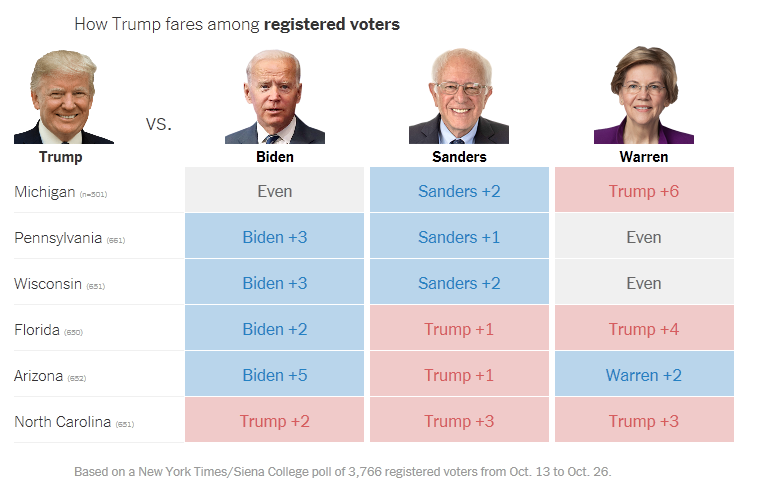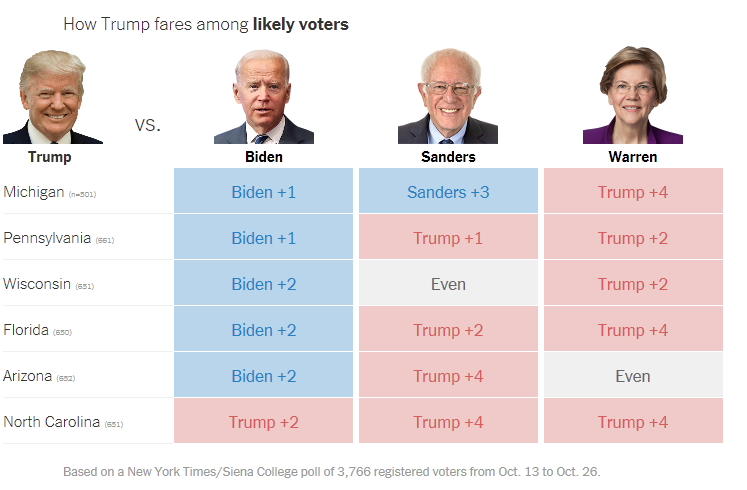Damage to the Party
Like the asker suggested, Trump could be posing damage to the Republican brand. Anytime Republicans oppose Trump on an issue, he publicly disrespects them. He has attacked current and former Republican politicians, pundits, party supporters, and members including John McCain, Ted Cruz, Paul Ryan, Mitch McConnell, Jeb Bush, Chris Christie, Steve Bannon, Glenn Beck, Jeff Sessions, Jeff Flake, Lindsey Graham, George H. W. Bush, George W. Bush, Rand Paul, Rick Perry, Mitt Romney, Ben Carson, Carly Fiorina, Nikki Haley, John Kasich, Megyn Kelly, Karl Rove, Marco Rubio, Charles Krauthammer, the Koch Brothers, the Fox News network, Lisa Murkowski, Sheppard Smith, Scott Walker, and Robert Mueller. Trump has hired and fired some prominent Republicans within the party establishment, including former RNC communications director Sean Spicer, former RNC chairman Reince Priebus, and former Republican senator Jeff Sessions. Some have said the 2018 mid-terms would be a referendum on the public's sentiments towards Trump, and in 2018, Republicans lost the House of Representatives (and by a wider margin than projections predicted) for the first time since 2008, and lost ground on many gubernatorial seats.
There have been many articles speculating that Trump is doing long-term damage to the Republican brand 1 2 3 4.
Beware of Spoilers
One consideration missing from other answers is the effect of spoilers during primaries. In the 2016 Republican primary, there were 12 candidates who ran in the primary, and 5 more in the mix who dropped-out before the primary. By most peoples' view, Trump was most unique among the field, whereas many other candidates were part of the tea party establishment, who either held public office as a Republican, or campaigned in previous Republican presidential primaries; and many of them had extremely similar policy positions and messages. In other words, the other 16 candidates were virtual spoilers or clones of each other. This put Trump in a position to dominate many of the earlier primary races, and this advantage of running against a field of clones would persist until the final three candidates (it's fair to say, at this point, that Ted Cruz and moderate John Kasich were as mutually different from one another as they were from Trump). It's been argued that towards the end of a primary process, some party members will get behind the candidate in the lead and give that candidate a big push so that they have big momentum coming out of the primary. If this is true, Trump's lead in pledged electors towards the end of the primary persuaded Republicans to support him more strongly during his final stretch against Cruz and Kasich.
The point I'm trying to make about spoilers isn't just about 2016, though. The question is... in 2020, will Trump have the same kind of advantage granted by spoilers, or could he have a disadvantage in the form of spoilers? It's always possible that the 2020 Republican primary field could be 4 candidates very similar to Trump (like Steve King, Roy Moore, Matt Gaetz), and only 1 candidate different from Trump's style (like John Kasich, Jeff Flake, or Susan Collins). Part of the reason that I propose this possibility is that more and more Republicans are emulating Trump's politics, meanwhile established party insiders rarely contest the seat of a sitting president. This could mean, in theory, lots of Trump clones, but very few establishment types (like Orrin Hatch, Mitch McConnell, Chuck Grassley). So... Trump's viability in the 2020 primary might be at risk, but there are no guarantees of that either.
What Else Can Republicans Do?
There are basically two kinds of recourse I know of to remove Trump from office, which are defeating him in a 2020 party primary, and impeachment. Successfully impeaching Trump would required something like 18 Republican senators voting to convict. Any Republican senator in a heavily red state who voted to convict Trump could expect to face certain defeat in their next re-election. Even in swing states, it is certain that they would not win their next party primary as long as Trump's approval among Republicans is around 89%. Impeachment is not a realistic possibility, because political self-interest will trump any evidence of a crime. Another way of removing the president (but this is not entirely up to the RNC, as per the question) is by invoking Section 4 of the Twenty-Fifth Amendment. This would require the action of the Vice President, and the collaboration of the majority of another body (I wonder if its sufficient to have the VP and the majority of the House of Representatives).
Whenever the Vice President and a majority of either the principal officers of the executive departments or of such other body as Congress may by law provide, transmit to the President pro tempore of the Senate and the Speaker of the House of Representatives their written declaration that the President is unable to discharge the powers and duties of his office, the Vice President shall immediately assume the powers and duties of the office as Acting President.
Fundraising
The most likely route to remove Trump from the Republican brand is to defeat him in a 2020 party primary. Another relevant battleground for this primary is going to be fundraising. A challenger to Trump's seat is going to need to gain favor with prominent Republican donors, and attempt to also court traditionally Democratic donors who want to enable a Trump defeat.
Here are some top relevant donors in the 2018 election cycle according to opensecrets
Top organization Republican donors: Las Vegas Sands, Adelson Drug Clinic, Uline Inc, American Action Network, Senate Leadership Fund, Blackstone Group, and Republican Governors Assocation.
Top organization Democratic donors who also donate substantially to Republicans: None. Some contribute very small amounts to Republicans.
Top Conservative or Moderate Super Pacs: Congressional Leadership Fund, Senate Leadership Fund, New Republican PAC, America First Action, DefendArizona, Club for Growth Action, With Honor Fund, National Assn of realtors, Patients for Affordable Drugs Action
Top PACS who contribute substantially to Republicans (all of these contribute to Democrats as well): National Beer Wholesalers Assn, AT&T Inc, Northrop Grumman, National Assn of Realtors, Sheet Metal Air Rail and Transportation Union, American Bankers Assn, Operating Engineers Union, Credit Union National Assn, Lockheed Martin, etc.
Top Republican individual donors: Sheldon Adelson, Richard Uihlein, Steve and Christine Schwarzman, Kenneth Griffin, Jeff Bezos, and Timothy Mellon.
Top Democratic individual donors who also contribute to Republicans: Michael Bloomberg, Thomas Steyer and Kathryn Fahr, Donald Sussman, James Simons, George Soros, Fred Eychaner, and Deborah Simon.
Although the Koch Brothers do not show-up in any of these lists by name, they are also understood to be a consistently large Republican donor, sometimes in amounts of hundreds of millions of dollars.
Any challenger to Trump will have to lobby the top donors for their support. In the case of the Koch brothers, the sparring between Trump and the Koch brothers may motivate them to back a different candidate. Jeff Bezos is also not likely to back Trump in 2020, due to souring relations, but he was a big backer in 2016. Michael Bloomberg's opinion of Trump may lead him to back a Republican challenger (although he's shown more interest in actually running against Trump in 2020). Trump's attacks on George Soros make it plausible that Soros could back a Republican challenger. Sheldon Adelson seems to be a steady supporter of Trump. While Richard Uihlein has consistently backed MAGA Republicans like Roy Moore, it seems that he may be getting tired of backing losers and may be rethinking who he gets advice from (Uline Inc will also use its money in the same way). Thomas Streyer supports impeachment of Trump, so he will probably support anyone who can credibly challenge Trump. Donald Sussman donated big money to the Clinton campaign to oppose Trump, so he might support a 2020 challenger. American Action Network has been a big Trump supporter. AT&T looks to be at odds with Trump, but they also paid $600,000 to Michael Cohen.
Support of Voters
Anything the RNC does to subvert the Trump administration is likely to incur backlash from the party's voters. Before taking its ultimate action (impeachment or whatever else), the party would first need to launch a substantial public relations campaign to become the voters' higher priority in relation to supporting Trump. The most prominent messaging system between the RNC and Republican voters is Fox News; so Fox News and its owner Rupert Murdoch are in a position to pick the winner of this fight. Fox News's coverage of Trump seems to be consistently supportive of him, barring a few exceptions out of thousands of hours of coverage. However, although Rupert Murdoch has a pretty close relationship with Trump, there is also tension within it 1 2. If Murdoch ever decided to shift Fox News coverage in a direction that prioritized the RNC over Trump, it could eventually pave the way for a big move by the RNC against Trump.

